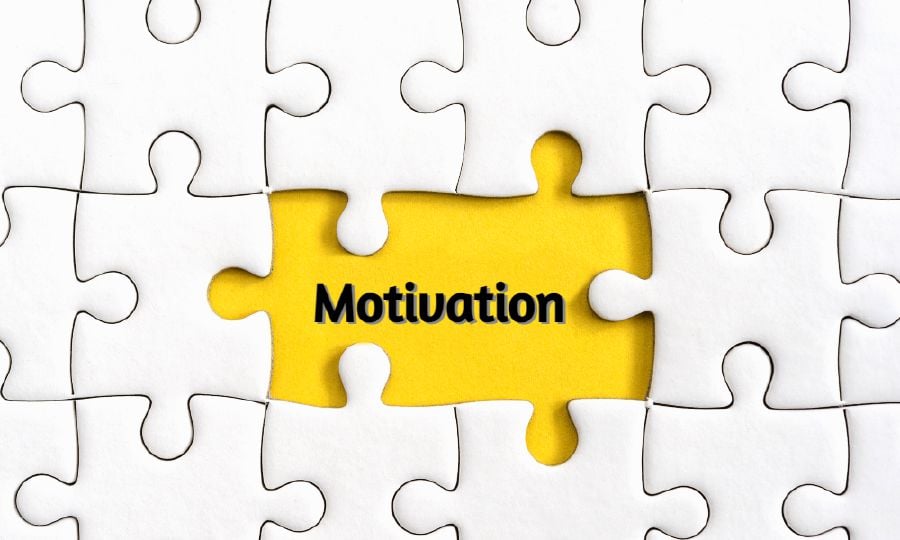Motivation is the reason, or reasons that make you act or behave in a particular way. In other words, it is your motive to take action.
And right now, as the world recalibrates and finds its way once again, we all need to revisit our motivation for everything, and especially for our work-life.
You are motivated by many things. Some are external while others are intrinsic. There is so much research by psychologists and social scientists on the difference between the two.
Essentially, external motivation is when you do something to earn a reward or to avoid some punishment.
For example, the motivation for a kid to clean up their room is to avoid being reprimanded by their parents. Or, towards the end of the year, you muster up more energy to close in on your sales targets at work, because you want to qualify for the yearly bonus.
Internal motivation is when you behave in a way that is personally rewarding to you.
I am, for instance, always motivated by travel. I discipline myself to take to regular vacations simply because it is an intrinsic source of motivation for me. I travel for the sake of travel, and it makes me happy. There is an element of a 'reward' in this motivation, but it is an inner reward rather than something I would gain outwardly.
So, as we all reconnect with our motivation, we have to find the things that stimulate us most.
The rewards you are promised will inspire you to take action. Knowing that if you meet targets, you will be given a financial incentive, or be offered a larger role in your company, may spur you.
Or, attending a seminar and listening to an engaging speaker and gleaning some insights might create the necessary stimulus for you to take action. Similarly, if you have a down-period, or if you find yourself losing your drive and you are in a rut, you may need some external motivation to lift your spirits.
But remember that external motivation is often short-lived. It has a limited lifespan and needs to be repeated. Because it comes from an external source, you will need it regularly to give you boost. And, this means you are dependent on someone or something beyond yourself.
Internal motivation on the other hand, comes from within.
Abraham Lincoln, once apparently said, "Most folks are as happy as they make up their minds to be".
I find this an incredibly powerful statement. I reckon we all have experienced this. When there is something that inspires or excites us, regardless of whatever the situation or the environment may be, in our minds, we remain deeply satisfied and joyous.
This is intrinsic or internal motivation. It is always driven by purpose. Our own purpose or intent.
When I am hired to conduct team-based training programmes, I focus on this for the participants. If they're unable to align their personal goals with the organisation's, they struggle to find purpose at work.
The difficulty that people face is when the hassle of daily work-life conflates the boundary between intrinsic and external motivation. Often, we get demoralised by external pressures and lose sight of our internal motivation or purpose.
In a leadership coaching session, I once conducted for a client, we discussed whether her career goals supported her personal goals. Surprisingly, she felt it didn't.
I saw how engaged she was with her job and the tremendous pride she had in her work. Therefore, when she declared that her career goals did not support her personal goals, I was a little puzzled.
I nudged her to talk about what her personal goals were. As we spoke, I noticed how important focusing on her children was, to her. It was clear that her main motivation in life was to educate and empower her kids to become well-rounded human beings.
And, because of the sheer volume of work on her plate, she felt that her career was often an obstacle to this.
Interestingly, as we continued to workshop these ideas over a few coaching sessions, we worked out that her work goals and personal goals, in fact, had a common denominator.
Just like with her children, she was highly motivated by her clients when they felt her work inspired and empowered them to take steps to improve their business processes.
This was exactly what she wished for her children. And, this was the point of convergence in her mind. Once we become aware of an alignment between our career and personal goals, things become clearer.
Heavy workloads sometimes demotivate and create an imbalance in our work-life equation. But resolving this 'problem' is handleable with delegation, and planning.
The secret to continuous motivation is that you must source it from within. If you look for someone or something external to provide you the energy to carry on, you will only, at best, grow irregularly.
So, work out what really motivates you, and find alignment.
Shankar R. Santhiram is managing consultant and executive leadership coach at EQTD Consulting. He is also the author of the national bestseller "So, You Want To Get Promoted?
The views expressed in this article are the author's own and do not necessarily reflect those of the New Straits Times






